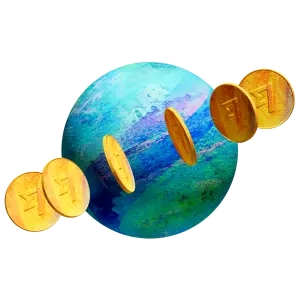Chinese Yuan RMB (CNY)
Kinesisk yuan är den officiella valutan på det kinesiska fastlandet. Tekniskt sett är yuan basenheten för renminbi (RMB) och den kallas ibland för renminbi.
Valutans namn
Chinese Yuan RMB
Valutasymbol
¥
Valutakurser för CNY
Se upp för dåliga valutakurser.Banker och traditionella leverantörer lägger ofta till extra kostnader genom prishöjningar på valutakursen. Vår smarta teknik gör oss mer effektiva, vilket innebär att du får en fantastisk kurs. Varenda gång.
| Namn | kinesisk yuan renminbi (CNY) |
|---|---|
| Symbol | ¥ |
| Minor Unit | Jiao (1/10 of a Yuan) |
| Minor Unit Symbol | 角 |
| Notes Freq Used | ¥1, ¥5, ¥10, ¥20, ¥100 |
| Coins Freq Used | ¥1, ¥5, 10, 50 Jiao |
| Central Bank | People's Bank of China (PBOC) |
| Users | Kina |
Facts Table for kinesisk yuan renminbi (CNY)
The official currency of China is the Chinese Yuan, people also say it as Renminbi. The CNY to USD exchange rate stands as the most widely used. The currency code for Chinese Yuan Renminbi is CNY, denoted by the symbol ¥.

Origins of Chinese Currency
Dating back over 3000 years, Chinese currency has its roots in both Ancient and Imperial China. In 1914, the Republic of China established the Silver Dollar as its official currency, complemented by the introduction of copper, fen, and nickel coins during the 1930s. However, silver's increased value led to a shift away from the silver standard. Consequently, in 1935, a new currency named Fǎbì was introduced.

Arrival of the Gold Yuan and Chinese Yuan Renminbi
In 1948, the Gold Yuan replaced the Fǎbì, marking a conversion rate of 1 Gold Yuan to 3 million Yuan Fǎbì. Simultaneously, the Yuan Renminbi (commonly referred to as RMB) was introduced to stabilise the Communist-controlled regions of mainland China. Subsequently, in 1955, a re-evaluation occurred, resulting in the introduction of a new Yuan Renminbi at a rate of 1 new Yuan to 10,000 old Yuan.

Renminbi in Global Exchange
During the period of a controlled economy, the Chinese Yuan Renminbi was pegged to unrealistic exchange values, leading to stringent currency regulations. As China's economy began opening up in 1978, the Yuan Renminbi was primarily utilised domestically, prompting foreigners to resort to exchange certificates, which consequently fostered a thriving black market.
From 1997 to 2005, the Chinese government fixed the exchange rate of the Yuan Renminbi to the US Dollar at an approximate rate of 8.3 CNY to 1 USD. In 2005, a more flexible exchange rate mechanism was introduced, readjusting the RMB to 8.1 Renminbi per US dollar. China initiated a pilot program in 2009, permitting certain businesses in regions like Guangdong and Shanghai to conduct trade with counterparts in Hong Kong, Macau, and select nations. This program has expanded nationwide and internationally. Furthermore, China has established direct currency trade agreements with Australia, Japan, Thailand, Russia, and Vietnam, bypassing the need to convert to the US Dollar. Presently, the Renminbi's value operates under a managed float, determined by a basket of foreign currencies.